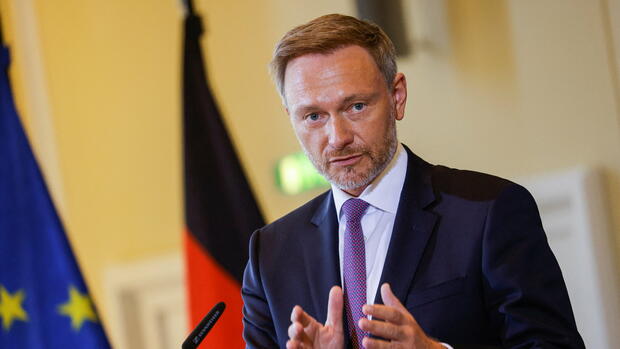The Treasury Department expects that the global minimum tax will not bring much additional revenue.
(Photo: Reuters)
Berlin Finance Minister Christian Lindner (FDP) does not expect high additional income from the introduction of a global minimum tax. This emerges from a draft law that is available to the Handelsblatt. Lindner wants to implement the internationally agreed measure with him.
In the medium term, the Ministry of Finance expects the minimum tax to generate income of 200 million euros per year. After the introduction, the sum will initially be significantly higher. In 2026, the revenue should be one billion euros. In the years that follow, the sum continues to fall to 800 million (2027) and 600 million (2028).
A reason for the declining expectation is not given in the draft. It is conceivable that the corporations affected will change their business structures in order to pay less tax. In addition, more and more states want to gradually introduce the minimum tax, which could also reduce revenues.
At the same time, other tax rules will be adjusted in Germany with the introduction of the minimum tax. This leads to reduced revenue for the Treasury, especially from trade tax. As a result, the bottom line is that the minimum tax for the German state will not bring any additional income, but rather, according to the forecast in the draft law, will result in 115 million euros less per year.
The Ministry of Finance therefore expects significant additional income only in the first few years after the introduction. In 2026, the bottom line is that there will still be an additional 910 million euros, a year later it will be 535 million euros and in 2027 it will still be 285 million euros.
Companies face high costs
One thing is clear: there will be no billions in additional income, which politicians had been hoping for in the meantime. In addition, the introduction of the minimum tax also incurs costs. In the case of public administration, the Ministry of Finance expects a low single-digit million sum for personnel and IT.
>> Read more: How two Germans got the global minimum tax off the ground
The cost to the economy will increase. The Ministry of Finance puts the compliance costs for companies at 40.6 million euros annually. In addition, there is a one-off expense of 322.6 million euros for the introduction of new processes for tax returns.
The introduction of the global minimum tax is one of the largest international tax reforms ever. The project was largely promoted by the former finance minister and current chancellor, Olaf Scholz (SPD).
>> Read here: “Century tax reform” should ensure more justice – now an important part could fail
In the summer of 2021, 138 countries had agreed to introduce the global minimum tax. Accordingly, large international corporations must pay at least 15 percent tax on their profits. The relevant rules of the Organization for Economic Co-operation and Development (OECD) are now being introduced by the states. There is a common guideline in the EU that will be transposed into national law by the end of the year. With the draft law, Lindner is now complying with this.
Companies with a turnover of more than 750 million euros are affected by the minimum tax. The minimum tax is intended to ensure that corporations can no longer significantly reduce their payments by shifting profits to tax havens. So far, companies have hardly paid any taxes on such profits. In the future, all profits that a group generates worldwide will be taxed at 15 percent, no matter where they arise.
More: You should know these six injustices in the tax system
